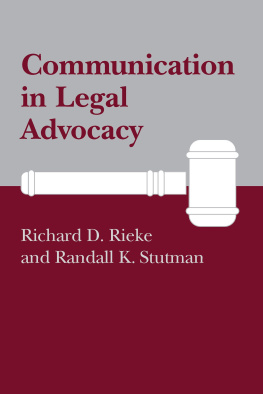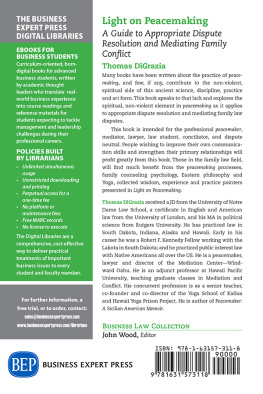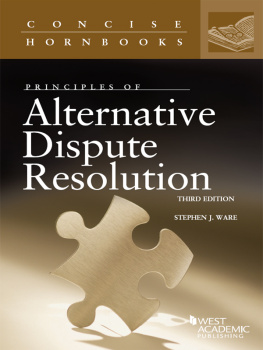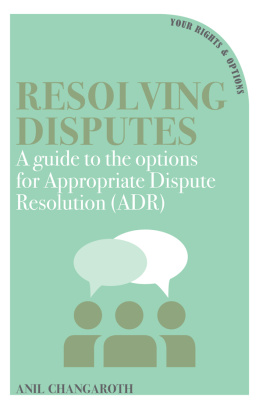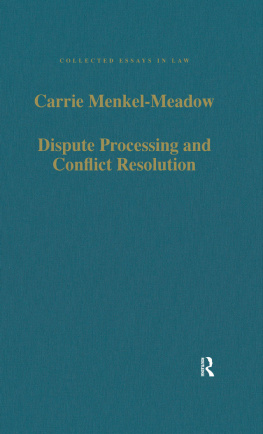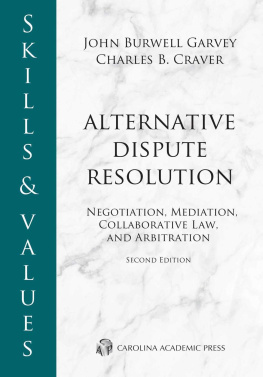Contents
Page List
Guide

COMMUNICATION IN LEGAL ADVOCACY
Studies in Communication Processes
COMMUNICATION IN LEGAL ADVOCACY
by
Richard D. Rieke
Randall K. Stutman
University of South Carolina Press
Copyright 1990 University of South Carolina
Second Printing 1995
Cloth and paperback editions published by the University of South Carolina Press, 1990
Ebook edition published in Columbia, South Carolina,
by the University of South Carolina Press, 2022
www.uscpress.com
Manufactured in the United States of America
31 30 29 28 27 26 25 24 23 22
10 9 8 7 6 5 4 3 2 1
The Library of Congress has cataloged the print editions as follows:
Rieke, Richard D.
Communication in legal advocacy / by Richard D. Rieke, Randall K. Stutman 1st ed.
p.cm.
Includes bibliographical references.
ISBN 0-87249-639-2. ISBN 0-87249-681-3 (pbk.)
1. Trial practiceUnited States. 2. Forensic oratory. I. Stutman, Randall K., 1957 . II. Title. III. Series.
KF8915.R54 1990
347.737dc20
ISBN 978-1-64336-326-4 (ebook)
Our love and appreciation to Mary Lou and Sara
CONTENTS
PREFACE
Cicero adapted rhetorical theory to legal advocacy and established himself as a significant contributor to our understanding of both. In the more than two thousand years since Cicero wrote, the relationship between research in rhetorical/communication theory and the practice of trial advocacy has waxed and waned, but it is probably as vital today as it has ever been.
Since the replacement of the apprenticeship system of studying law, the practicing bar has sought to balance the emphasis of law schools on case law with a body of practical guides to such lawyering behaviors as trial advocacy. Great advocates have written their memoirs, and special workshops and projects have published practical guides. They have proven invaluable to young attorneys who find themselves admitted to practice with little understanding of how to go about it.
As valuable as these efforts have been, they share an inherent weakness: They must assume that what was successful for one advocate or what has worked in some trials can be applied generally. They are bound to the presumption that if a trial was won or if an attorney had a successful career, every practice associated with the success was equally responsible. This is an inevitable result of the separation of theory and practice, of mistaking experience for research, of treating a science as if it were an art.
But there is also an inherent danger in granting too much credence to scientific research at the expense of practical experience. The scientists can too easily drift off to the study of issues that have no immediate urgency, or arrogantly assume to have a better understanding of how a justice system should function than those who daily work within it. This can lead researchers to propose utopian solutions to practical problems.
What follows in this book is an effort to return to the Ciceronian ideal: to produce a work that brings our best scholarship to bear directly upon practical problems in such a way that science will inform practice and practice will inform science. We operate from the premise that good advice is generated by good explanations, and there is no shortcut. We presume that theory and research in trial advocacy complement the assumptions of effective advocates and compete only with those assumptions that are the products of hasty or unsystematic generalization and prejudice.
The book is structured according to our analysis of key elements in the process by which lawyers help people resolve their disputes: an overall discussion of dispute resolution followed by a focus on the trial in terms of the environment of the courtroom, legal procedure, fairness, and trial venue. Then we examine individually the elements of the trial, including jury selection, opening statements, the process of negotiating credibility, evidence and testimony, witnesses, closing arguments, and the ways in which juries decide.
In each chapter we have sought to report the best theory and research now available and present that content in terms of the practical concerns of trial advocates. We do not presume to say how the process ought to be constituted. Instead, we try to share our best understanding of how trial advocacy can be practiced consistent with practical experience and scholarship.
COMMUNICATION IN LEGAL ADVOCACY
Chapter

DISPUTE RESOLUTION
From time to time we read of successful people who close out their affairs and escape to some isolated location on a ship, desert island, or mountaintop. When asked, they frequently reply that they just had to get away from the daily grievances that come with living in the modern world. They have found their resolution, but the rest of us cannot get away that easily. We need to learn to deal with grievances and go on living with other people.
Our society has created a variety of ways of dealing with grievances in acceptable ways, and the trial at law is probably the most formal and well developed. Trials, viewed in terms of the communication processes they involve, constitute the focus of this book. However, in order to understand trials, it is first necessary to look at some of the other ways our culture allows us to resolve our disputes with other people. The purpose of this chapter is to examine the basic nature of human disputes and the processes of negotiation, mediation, and their variations.
Just what do we mean by the term grievance? First, we need to call to your attention some common situations that could constitute the start of a grievance. For example, have you ever had someone shove ahead of you in the check-out line at a store? Did you ever feel the flush of anger as you were pushed aside on the sidewalk so that someone else could pass? What would you do if your neighbors dogs barked day and night and kept you awake?
These incidents seem trivial to you, perhaps. So, think of some that might arouse your attention. For example, would you be upset if the dump truck in front of you hit a bump, causing a rock to fly off and drive a deep crack in your windshield? Or maybe you would begin to feel a sense of grievance if you saved up and bought a new car only to have it go wrong every two weeks so that you constantly have it back in the shop. Is it any of your business if your neighbors, the same ones who own the dogs, get drunk every Saturday night, yell at one another, and occasionally get into a fight on the front lawn?
Now, maybe you begin to see what we mean by grievance. Things can get worse. What do you believe should be done if your boss installs a new office machine and tells you to use it without giving you safety precautions, and you almost cut off your finger using it? Or should something be done when you have an operation on one finger only to discover that you have lost the sensation in the entire hand? If you know it was the neighbors thirteen-year-old son who broke into your garage and took your bicycle, but they deny it, what do you do? Or, what if a fire truck comes into the intersection against the red light so that you hit it, and you feel it should have gone more slowly; is there any way to seek relief?

